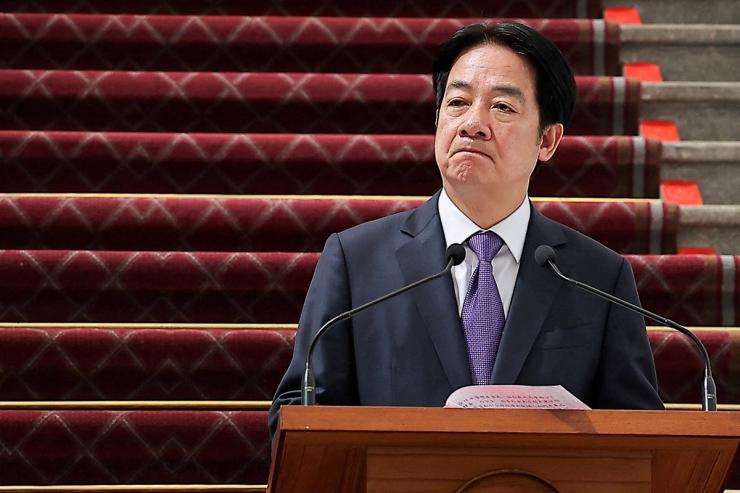The News
Taiwan’s President Lai Ching-te on Thursday announced plans to restore the island’s military courts in order to counter what he described as China’s “influence campaigns and manipulation.”
Lai accused Beijing of trying to “absorb” Taiwan — China has long viewed the island as a breakaway province that it will eventually subsume. Taiwan’s intelligence agency has said three times as many people were charged with spying for China in 2024 than in 2021; immigration authorities said Wednesday a Chinese resident would be expelled from Taiwan after advocating for unification with Beijing on TikTok.
“It is time for us to take preventative measures, strengthen our democratic resilience and national security, and protect freedom, democracy and [the] way of life we cherish,” Lai said.
The courts are part of a package of measures designed to counter Beijing, including stricter rules on residency applications by Chinese citizens. It’s unlikely that they will pass, however: Lai’s Democratic Party lost its parliamentary majority last year, and the idea of peacetime military courts is controversial in Taiwan: The island was ruled by martial law for nearly four decades — a period known as the “White Terror” — until 1987.
SIGNALS
China influence campaigns are growing, global threat: Analysts
Beijing in recent years has deployed targeted disinformation campaigns “to reinforce [its] sovereignty claims in the Asia-Pacific and to favourably shape opinions online in its favour,” a 2024 International Institute for Strategic Studies report found. Analysts consider Taiwan as “the most important target of Chinese election interference,” although Canada, the US, and other world nations have also seen such targeting, according to the Swedish National China Centre. Interference varied from providing support for pro-China candidates to running sabotage campaigns, their analysts said. Beijing was also found to have used social media networks to disseminate AI-generated content ahead of last year’s US election that was “seeking to create a sense of a sclerotic superpower in disarray,” one analyst told The New York Times.
International support for Taiwan is waning
“In the battle for global backing over [Taiwan’s] fate, China is rapidly gaining ground,” The Economist wrote: 70 countries have officially endorsed China’s claim of sovereignty over the island and that China is entitled to pursue “all” efforts to achieve re-unification. The vast majority of those nations are located in the Global South, and have adopted the Beijing-backed stance only relatively recently, according to the outlet. Part of the reason may be Beijing’s economic outreach: China’s willingness to provide financial aid, back infrastructure projects, make investments, and agree trade deals likely explains why countries withdraw diplomatic recognition of Taiwan, a Global Taiwan Institute report found.
US drawback from Ukraine support weighs on Taiwan
US President Donald Trump’s wavered support for Ukraine and overtures to Russia has amplified concerns over the reliability of American security guarantees for Taiwan in the event of a Chinese invasion. But the Taiwan response to the Ukraine ceasefire talks has nonetheless been “largely indifferent,” the South China Morning Post noted. Some analysts believe that Trump’s withdrawal from Europe will lead to greater intervention in the Asia-Pacific region, and Taipei is apparently in talks with the US over a possible arms deal worth as much as $10 billion, Reuters reported. Taiwan also produces much of the world’s semiconductor chips, control over which the Trump administration has positioned as critical to American technological dominance.



